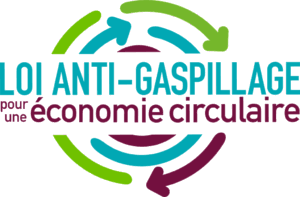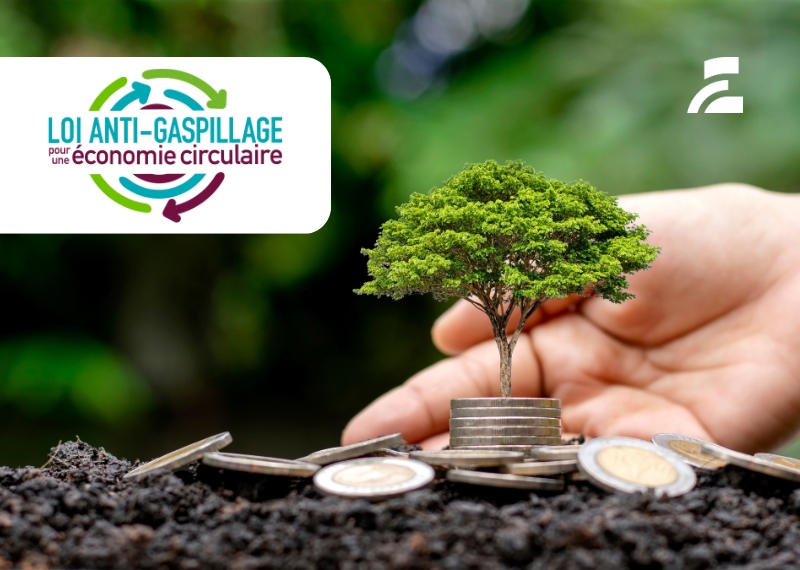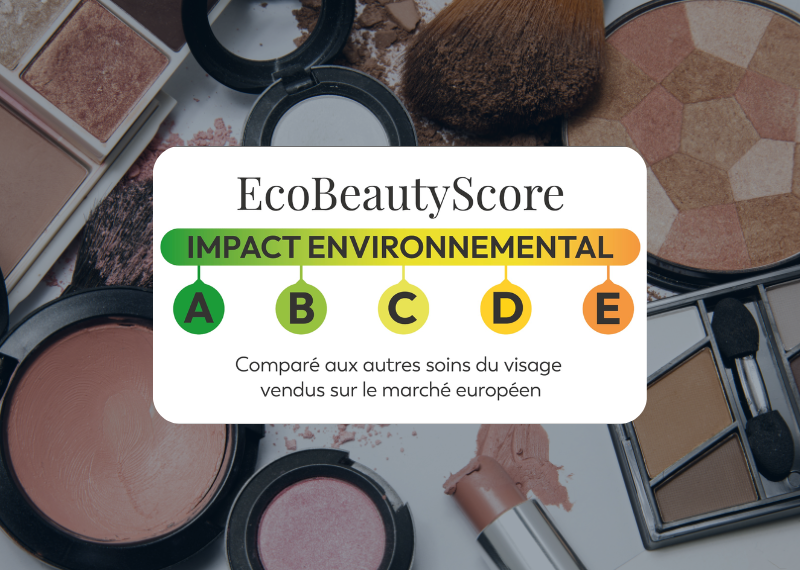Table of contents
Faced with the climate emergency, France’s anti-waste law for a circular economy (AGEC) was enacted on February 10, 2020. With the ambition of shifting from a linear to a circular economy, it is based on the “3Rs” decree: reduce, reuse, recycle. Five years later, where do we stand? What impact has it had on retailers and consumers? And how can companies remain compliant with its requirements?
What is the AGEC law: understanding the French anti-waste law
The AGEC Law seeks to fundamentally rethink our production and consumption patterns. Its goal: reduce waste, extend product lifecycles, and accelerate the transition toward a circular economy.
It is structured around five main pillars:
- Phasing out single-use plastics
- Providing consumers with better information
- Fighting waste and encouraging solidarity-based reuse
- Tackling planned obsolescence
- Improving production methods
A roadmap with clear targets
France’s anti-waste law represents a major milestone in reshaping production and consumption models. It sets ambitious goals to guide actions in the years to come across the French territory:
- Zero single-use plastics by 2040
- 20% reduction in single-use plastic packaging by the end of 2025
- 5% of packaging to be reusable in 2023, rising to 10% by 2027 in specific sectors (such as foodservice and retail)
- 50% reduction in food waste by 2025 (distribution and collective catering), compared with 2015 levels; extended to the entire food chain by 2030
- 100% recyclable plastic packaging by 2030
- 77% of plastic bottles to be recycled by 2025
At the European level, the Packaging and Packaging Waste Regulation (PPWR) will come into force in 2026, reinforcing and harmonizing requirements across the EU to accelerate recycling, reuse, and waste reduction.
Retailers are taking action
For retailers, meeting the requirements of France’s AGEC Law means balancing performance with responsibility. Many initiatives have already been launched to build a more sustainable economy, including:
- Reducing single-use plastics: rolling out alternative packaging (cardboard, glass, recycled plastics), eliminating plastic bags, and introducing deposit-return schemes.
- New distribution models: expanding bulk product offerings in supermarkets.
- Reuse and deposit systems: promoting the use of returnable bottles and food containers.
- Food and non-food donations: stepping up partnerships with associations to curb waste and foster solidarity.
- Clearer consumer information: eco-labels, Triman logos, environmental impact displays, and greater transparency overall.
How does France’s anti-waste law affect consumers?
Consumption habits have evolved significantly in recent years. Today’s consumers expect brands and retailers to show greater responsibility and transparency. The AGEC Law gives companies several levers to meet these expectations:
- A wider choice of sustainable products: more bulk options, returnable or recycled packaging, and alternatives to single-use plastics.
- Greater information: recycling logos, environmental labeling, improved product traceability. Buyers are better guided in understanding the impact of their purchases and thus adopting more responsible behaviors.
- Active participation in the circular economy: returning containers, sorting waste, prioritizing reuse… consumers are becoming fully-fledged players in the ecological transition.
- New practices to adopt: bringing your own containers, potentially accepting higher costs associated with sustainable alternatives, or changing your purchasing habits. These changes require education and long-term support.

Between ambition and reality
While the French anti-waste law has marked a turning point in the transition to a circular economy, its implementation remains complex.
Some measures have already faced delays: for example, the ban on plastic packaging for certain fruits and vegetables has encountered resistance from industry sectors and a lack of viable alternatives.
Inequalities also remain across regions in terms of recycling and sorting infrastructure, limiting collection efficiency. Smaller businesses, meanwhile, struggle with limited resources and the higher costs of sustainable materials.
To overcome these challenges, collective mobilization is essential. Manufacturers, retailers, local authorities, and consumers must all adapt their practices. Financing and support for businesses remain critical, as do efforts to educate and raise awareness among the general public.
How to stay compliant with France’s AGEC Law?
Repairability scores, environmental labeling, reusable packaging management, and updating product data across thousands of SKUs: compliance with France’s AGEC Law is a major challenge for brands and retailers.
To achieve this, the right tools are key
Equadis supports brands and retailers in turning regulatory constraints into business opportunities. With an AI-powered PIM, our clients can:
- Automatically and at scale fill in all AGEC-related product data. Dozens of attributes must be tracked, including packaging type, material composition, quantities used, recycled content percentages, and environmental certifications.
- Speed up product sheet updates and validation, while ensuring data accuracy.
- Adapt to current regulations by easily integrating new datasets required by the law, while also preparing for upcoming rules such as the digital product passport, eco-design criteria, EPR reporting, or the EU Deforestation Regulation (EUDR).
- Centralize, enrich, and distribute this information across all channels: physical stores, e-commerce platforms, marketplaces, internal software, or consumer apps.
The result? Reliable, complete, and up-to-date product information, consistently distributed across every touchpoint. This means assured compliance, improved consumer experience, and a stronger brand image.



